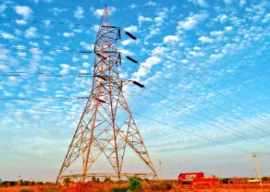As political appointees dominate boards of state-run companies, the Cabinet Committee on State-owned Enterprises has sought legal opinion of the Law Division about removing the existing directors and reconstituting the boards through bringing neutral experts and professionals. The previous Pakistan Democratic Movement (PDM) government had appointed such board directors of power distribution companies, who had either political connections or were relatives of parliamentarians. It came at a time when the entire power sector had been plagued by circular debt, which piled up due to company inefficiency and rampant power theft. The cabinet committee, in a meeting held in the last week of September, directed the Finance Division to seek advice of the Law and Justice Division for reconstituting the boards of state-owned enterprises (SOEs) and submit its response for review. It was emphasised that the role of the federal government had been sufficiently explained in the SOE policy. However, the policy does not provide any fit-and-proper criteria for ex-officio directors. It was explained that the fit-and-proper criteria had not been extended to ex-officio directors in Section 16(1) of the SOE Act 2023, therefore, it was not included in the policy. The cabinet body discussed the possibility of making changes to the existing boards of directors in light of the SOE Act and sought the Securities and Exchange Commission of Pakistan (SECP)’s advice on the qualification of directors to ensure an effective composition of boards. For the purpose, it was suggested, the legal advice of the Law Division may be sought. The Finance Division informed the cabinet panel that the State-owned Enterprises (Governance and Operations) Act 2023 (the Act) was notified on February 2, 2023. Section 4(1) provides that “the first policy under this Act shall be notified no later than one year from the coming into effect of this Act”. The draft policy was prepared by the Finance Division where the role of the federal government was sufficiently explained in para 9, 10, 14 and 15. It was shared with relevant stakeholders including the ministries/ divisions having administrative control over SOEs for soliciting their views and comments. Furthermore, in order to ensure transparency and take input from the general public, the draft policy was placed on the Finance Division’s website on April 19, 2023. The Finance Division pointed out that the Cabinet Committee on SOEs considered the SOE (Ownership and Management) Policy 2023 in its meeting on September 21, 2023 and gave a week to ministries/ divisions for communicating their views. Accordingly, para 12 of the policy was amended to include the option of “listing and offloading of shares of SOEs on stock exchange” and para 35 was added. No formal comments were received from any ministry/ division following the September 21 meeting. The Finance Division submitted the revised SOE (Ownership and Management) Policy 2023 for consideration and approval of the cabinet committee. The committee discussed the draft policy threadbare and observed that the SOE Act empowered SOE boards to appoint the CEO while the Companies Act empowered the government to nominate the CEO. Therefore, it was noted, the policy would require new guidelines and rules for appointments on key positions, specifically the CEO, CFO and company secretary and until the issuance of new guidelines, the existing provisions of the Public Sector Companies (Corporate Governance Rules) 2013 should be applicable subject to compliance with the Act and the policy. Furthermore, there was no clarity in the policy as to whether provisions of the Companies Act 2017, which were not covered in the SOE Act, ie, provisions related to the annual general meeting, filing of annual returns/ audited financial statements, increase in capital, change of address, transfer of shares, election of directors or other matters, would be applicable to the SOEs falling within the ambit of the SOE Act or otherwise. It was suggested that the applicability of the Companies Act 2017 to the SOEs administered under the SOE Act should be clearly provided in the SOE policy to avoid any confusion. Matters regarding the remuneration or fee of directors for attending meetings were also not addressed in the SOE policy. Section 4(2)(c) of the SOE Act provides that the policy “shall cover the manner and procedure for exercising the rights of the federal government as a shareholder in SOEs”. However, such procedure for exercising the rights was not provided in policy. It was suggested that the Finance Division may initiate work on drafting the private sector development policy. Moreover, the committee deliberated on the dormant SOEs and directed the Central Monitoring Unit of the Finance Division to identify such state units. The Cabinet Committee on SOEs considered the summary titled “State-owned Enterprises (Ownership and Management) Policy 2023” and approved the draft policy with the direction to the Finance Division to incorporate the proposed changes and resubmit the policy at the earliest. Published in The Express Tribune, October 6th, 2023. Like Business on Facebook, follow @TribuneBiz on Twitter to stay informed and join in the conversation.






1721983879-0/BeFunky-collage]-(46)1721983879-0-270x192.webp)





















COMMENTS
Comments are moderated and generally will be posted if they are on-topic and not abusive.
For more information, please see our Comments FAQ